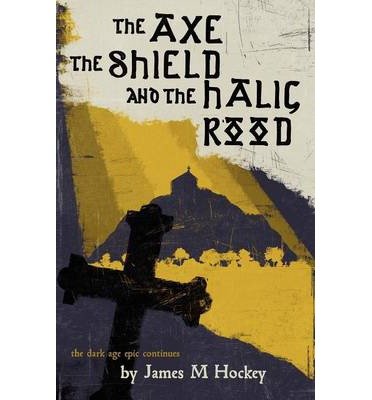The Axe, the Shield and the Halig Rood
The second in a projected series, this is an imaginative re-drawing of Dark Age Britain in the late 5thC AD, only two generations after the withdrawal of Rome. Into what will become the English heartland of Wessex, arrive a tribe of refugees from across the North Sea, led by the warrior Gewis. Blown well off-course from their planned landfall, they find themselves in a land of tribal conflict and the warrior lords of petty kingdoms. This is the ‘age of Arthur’ and Hockey has created an original and entirely plausible version of this giant of myth. There is no magic here except the power of the gods in the minds of those who follow them. Rather this is Britain before England as re-interpreted from the Anglo Saxon Chronicle, Nennius, Gildas and the Welsh Triads. The Gewissae make alliance with the warlord Caradoc, becoming his warrior confederates in exchange for land to settle. So begins a relationship that will empower both peoples and result in the founding of Wessex and the dynasty of Alfred and Athelstan.
Presented as a story within a story, this feels like a saga in the vein of Beowulf. It is the foundation myth of a people to be told around the hearth of the mead hall. I can imagine Raedwald of the Wuffingas of Sutton Hoo listening to his tribes own version amongst the hearthmen of his own hall.
In his author’s note, Hockey admits he has played ‘havoc with accepted views of the nature of post-Roman Britain and the ‘migration period’. There are points of interpretation that I might disagree with, however his creation remains at all times plausible. As the discovery of the wonderful Staffordshire hoard illustrates so well, our understanding of that period has to endure constant expansion and revision with the discoveries of new artefacts and new science.
I would have welcomed the chance to read the first book, The Axe, the Shield and the Triton, as it would have told me of previous events that had impacted on the development of major characters. But this is not essential, as the story stands quite adequately alone.
I look forward to seeing how the saga develops as Hockey’s blend of myth, history, archaeology and folklore evokes a sense of time and place that sites comfortably with someone raised with tales of the evolution of the English (and British) psyche.










